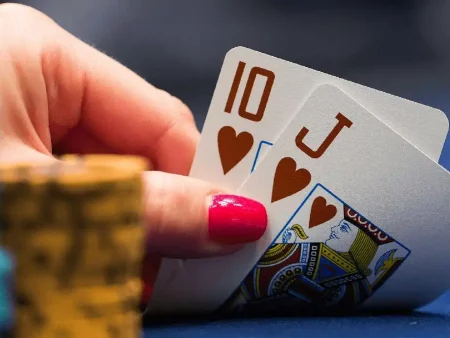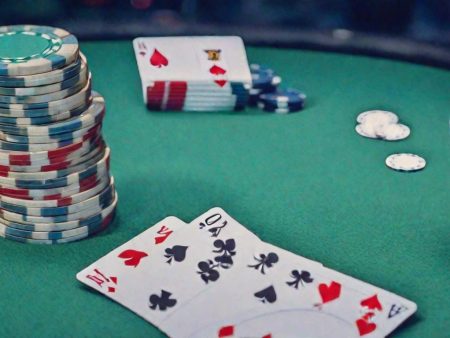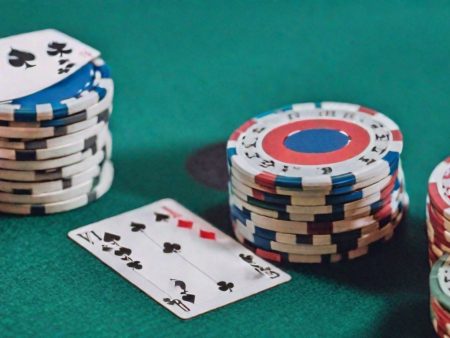In poker, the showdown is the climactic phase of the game—when players reveal their cards to determine who wins the hand. Understanding how the showdown works and who reveals their cards first is crucial, as it can significantly influence your strategy and the outcome of the game.
Understanding the Showdown: The Last Step in Poker
After selecting the best online casinos and completing your registration, you’re ready to dive into the game. Every poker session eventually reaches a pivotal moment: the showdown, where players reveal their hands to settle the winner of the hand. This process, known as the showdown, is the culmination of all the decisions and strategies that have unfolded during the hand, and understanding it is key.
Before the showdown happens, the final round of betting must be completed, whether it’s on the flop, turn, or river—depending on the type of poker you’re playing. Players who are still in the hand and haven’t folded are required to expose their cards. The player who made the last active move in the previous betting round (such as a bet or a raise) is the first to reveal their cards. Once the first player shows their hand, the other players follow in a clockwise direction. This continues until all players have shown their cards or only one player remains, thus winning the hand.
Once all the cards are on the table, the hands are evaluated, and the winner is determined. The pot—accumulated during the betting phase—goes to the winner, in the form of chips or money.
In certain scenarios, players may decide not to reveal their cards, a situation known as the “maximum bet” or “call.” In such cases, the player who made the largest bet must show their hand, while others may choose to discard their cards without revealing them. The showdown becomes the moment of truth, where all the bets, bluffs, and strategies culminate in determining who wins the hand. Understanding this process is vital, as it emphasizes the importance of reading opponents and concealing your own intentions to make the best possible decisions.
Read also: What is a rebuy in poker.
The Impact of the Order in Which Cards Are Revealed
It’s essential to note that the order of who reveals their cards first has strategic significance. The player who made the last active move in the previous betting round (the last bet or raise) is the first to show their cards. Following that, players reveal their hands in a clockwise order. However, if no active move was made in the last round, the player closest to the dealer (typically on the left) is the first to reveal their hand.
The order in which cards are shown has several implications for the dynamics of the game. First, it provides players with valuable insights into the hands and playing styles of their opponents. Observing the cards of other players allows you to gain crucial information on how they behave and what types of hands they choose in various situations. This information can be used strategically in future hands, enabling you to better read your opponents.
When you reveal your cards first, it can leave a certain impression on the table. Your opponents may interpret your move as either strong or weak, which could influence their decisions in subsequent hands. The showdown is not just about showing your hand—it’s a moment that significantly affects the flow of the game, as players’ perceptions of each other will be shaped by the revealed cards.
Read also: What is a push in poker.
The last player to show their cards holds a distinct advantage: they have already seen the hands of all the previous players and can base their decisions on that information. This can be particularly advantageous in multi-way pots, where players have varying hands.
How to Conduct Yourself During the Showdown
When it’s time for the showdown, your behavior can greatly impact the game. Here are some essential tips to help you handle the situation with poise:
- Stay Calm and Collected: Regardless of the outcome, it’s important to keep your emotions in check. Whether you win or lose, showing excessive joy or frustration can influence how others perceive you. Demonstrate confidence and composure throughout.
- Be Honest and Clear: When it’s your turn to show your cards, do so clearly and truthfully. Never attempt to hide or alter the reveal once you’ve begun. Honesty is a fundamental principle in poker.
- Respect Your Opponents: Whether you win or lose, always be respectful. Congratulate the winner if it’s not you, and maintain a courteous attitude towards everyone at the table. Avoid acting aggressively or mocking others.
- Reflect on Your Decisions: After the showdown, take some time to analyze the hand and your actions. Were there any moves you could have made differently? This self-reflection helps you improve your game.
- Maintain a Positive Image: In poker, your reputation matters. Being polite, professional, and gracious, even when you lose, fosters a positive image. It also creates a more enjoyable atmosphere for everyone involved.
- Embrace the Element of Chance: Remember, poker has an element of luck. You can’t control every outcome, so try to accept both wins and losses philosophically. Long-term success depends on skill and strategy, not on individual hands.
Now that you understand what the showdown is, how it works, and how you should behave during this crucial moment, you’ll be better equipped to handle this important part of the game. The right approach during the showdown can help you maintain a positive impression, respect the rules, and learn from each experience. In conclusion, if you’re searching for a casino with a low deposit requirement, follow this link. For more information about the gambling industry, check out our blog. Don’t miss out on exclusive casino content! Visit the casino bonuses and promotions guide and find the best deals!
FAQ: What is a showdown in poker and who is the first to open
What is a showdown in poker?
A showdown in poker occurs at the end of a hand when all betting has been completed and players reveal their hole cards to determine the winner. The player with the best hand according to the rules of the game wins the pot. Showdowns are common in most poker variants, including Texas Hold'em and Omaha.
Who is the first to open at the showdown in poker?
In most poker games, the player who made the last aggressive bet or raise on the final betting round is the first to reveal their cards at the showdown. If no one has bet on the final round, the player closest to the left of the dealer button usually opens first.
Do all hands go to a showdown in poker?
No, not all hands go to a showdown. If one player bets and all other players fold, the hand ends immediately, and there is no showdown. The player who made the bet wins the pot without having to reveal their hand.
What happens during a showdown in poker?
At the showdown, players reveal their hole cards, and the dealer determines the best hand using the standard hand rankings. The winner is awarded the pot, and if multiple players have the same hand strength, the pot is split accordingly.
Can players still bet during the showdown in poker?
No, the showdown is the final stage of the hand, and no further betting occurs once all players have revealed their cards. Betting only takes place during the previous rounds, with the showdown being a process to determine the winner based on hand strength.
Why is the showdown important in poker?
The showdown is crucial because it determines the winner of the hand. It is the final step in the game where players see who has the strongest hand and are awarded the pot. The ability to manage showdowns well can also be key to bluffing and strategic play.
What happens if there’s a tie at the showdown in poker?
If two or more players have hands of the same rank, the pot is split equally among them. In case of a tie in a community card game, such as Texas Hold'em, the shared community cards help to determine the outcome, and the remaining hole cards act as the tiebreaker.






